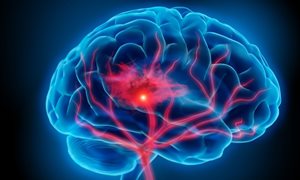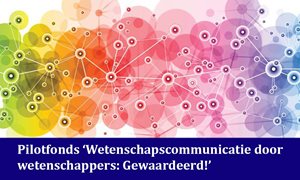10 August 2017
Below is a summary of the projects.
The DementieNet evaluation tracks the proliferation of DementieNetwerk networks. At this point, there are approximately twenty DementieNetwerks active in the Netherlands, whose efficacy will be tracked in this project. This will result in a unique collection of both qualitative and quantitative data about the development of networks in dementia care.
People with dementia and their carers both experience social stigma and often refrain from social participation. Social participation has become part of the new concept of positive health, recognising its importance for healthy ageing and acknowledging the emphasis placed on it by the World Health Organisation and Deltaplan Dementie. The research will focus on stimulating patients with dementia to participate in their environment and on creating dementia-friendly environments. The concrete question here is which mechanisms are effective in achieving this. The study will elucidate the development, testing, and dissemination of a manual wherein complex interventions are outlined in order to foster knowledge dissemination.
Problems with keeping eating, grocery shopping and cooking are prevalent among autonomously living people with dementia. Scientific research into help and support for these aspects is scarce and good interventions are lacking. TrEat studies and develops support methods for autonomously living people with dementia and their carers, in order to maintain proper food intake and to prevent malnutrition. Researchers of Radboudumc will collaborate with Stuurgroep Ondervoeding and ergo-therapists, nutritionists, and other caregivers, to develop an effective, multidisciplinary approach.
Healthy blood vessels are important for proper functioning of our brains. Accumulation of so-called amyloid beta proteins can result in damage to blood vessels and in a reduction of cognitive abilities in patients with Alzheimer’s disease. These accumulations of proteins cannot be properly determined during one’s lifetime. We have identified novel biomarkers in the cerebral fluid that might indicate the presence of accumulated proteins. These markers allow researchers to study the relation between protein accumulation and degrading cognitive abilities. Furthermore, researchers are developing methods to use these biomarkers to identify patients who might benefit from (anti-amyloid-beta) immunotherapy, and those who might not benefit from it.
 The national funding programme Memorabel II awarded funding for six research projects and three partner projects. This will bolster research on dementia at Radboudumc and the Donders Institute.
The national funding programme Memorabel II awarded funding for six research projects and three partner projects. This will bolster research on dementia at Radboudumc and the Donders Institute.
Below is a summary of the projects.
DementieNet
Dr. Marjolein van der MarckThe DementieNet evaluation tracks the proliferation of DementieNetwerk networks. At this point, there are approximately twenty DementieNetwerks active in the Netherlands, whose efficacy will be tracked in this project. This will result in a unique collection of both qualitative and quantitative data about the development of networks in dementia care.
The dementia-friendly society: improving health of people with dementia and retraining positive health
Dr. Maud GraffPeople with dementia and their carers both experience social stigma and often refrain from social participation. Social participation has become part of the new concept of positive health, recognising its importance for healthy ageing and acknowledging the emphasis placed on it by the World Health Organisation and Deltaplan Dementie. The research will focus on stimulating patients with dementia to participate in their environment and on creating dementia-friendly environments. The concrete question here is which mechanisms are effective in achieving this. The study will elucidate the development, testing, and dissemination of a manual wherein complex interventions are outlined in order to foster knowledge dissemination.
TrEAT the effect of nutrition
Dr. Maud GraffProblems with keeping eating, grocery shopping and cooking are prevalent among autonomously living people with dementia. Scientific research into help and support for these aspects is scarce and good interventions are lacking. TrEat studies and develops support methods for autonomously living people with dementia and their carers, in order to maintain proper food intake and to prevent malnutrition. Researchers of Radboudumc will collaborate with Stuurgroep Ondervoeding and ergo-therapists, nutritionists, and other caregivers, to develop an effective, multidisciplinary approach.
BIONIC
Dr. Marcel VerbeekHealthy blood vessels are important for proper functioning of our brains. Accumulation of so-called amyloid beta proteins can result in damage to blood vessels and in a reduction of cognitive abilities in patients with Alzheimer’s disease. These accumulations of proteins cannot be properly determined during one’s lifetime. We have identified novel biomarkers in the cerebral fluid that might indicate the presence of accumulated proteins. These markers allow researchers to study the relation between protein accumulation and degrading cognitive abilities. Furthermore, researchers are developing methods to use these biomarkers to identify patients who might benefit from (anti-amyloid-beta) immunotherapy, and those who might not benefit from it.
Related news items

Palliative care for people with Parkinson’s Disease and their family Caregivers Current state of affairs
7 October 2021 Advanced stage Parkinson’s disease can cause a variety of symptoms, for which palliative care can be beneficial, though research from the point of view of patients in later stages is still rare. Radboudumc researchers therefore placed their patients perspectives at the center of their recent study. go to page
Treatment of brain diseases at risk if neuroscientists can no longer conduct their research
5 August 2021 In order to treat brain diseases such as depression, Alzheimer's or ADHD, more research into the brain is needed. go to page
Grants for science communication at Radboudumc
22 April 2021 Scientists at the Radboudumc have received two KNAW grants, each worth 10,000 euros, for science communication. With the new fund, KNAW underlines importance of making science accessible. go to page
UMD Catalist grant for Mohammad Alsady and Federica Conte
24 June 2020They received this award to explore the potential of hiPS-derived skeletal muscle cells as model to investigate muscular pathophysiologic mechanisms in phosphoglucomutase I deficiency.
go to page
Bas Bloem elected as new member of the KNAW
30 April 2020 Bas Bloem is an expert in Parkinson's disease. He is also a healthcare innovator, focused on the integration of scientific research and its clinical applications. We congratulate Bas with this election. go to page
